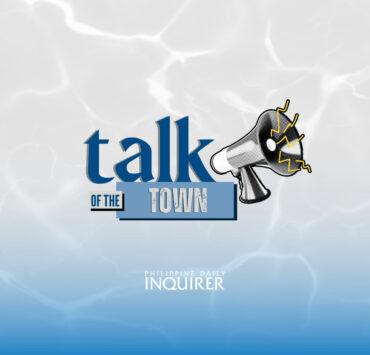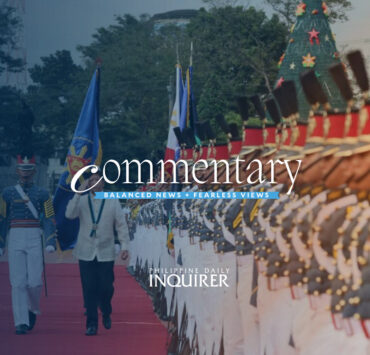Countering political gaslighting

Gaslighting is a form of psychological manipulation where a person deliberately lies or distorts the information to confuse the victim until they end up doubting their own version of the truth. It is a term used often in the context of abusive personal and professional relationships. Recently, however, gaslighting has come up in various online conversations to call out politicians when they seem to be encouraging deliberate misinformation to avoid accountability and shift public opinion in their favor.
A recent example involves Vice President Sara Duterte’s response to allegations that she had made a threat against President Marcos’ life. In a press conference last Friday, she firmly asserted that the idea that she hired a hitman was just speculation. This is a direct contrast to her strongly worded statement during a press conference on Nov. 23 of last year, claiming that she was a victim of an assassination plot and that she had already hired someone to retaliate on her behalf if she was killed. Online discussions quickly drew attention to the inconsistency between these statements, through a flurry of memes sharing side-by-side comparisons of the two videos. These posts also drew comments from the Vice President’s supporters, who argued that it should not be seen as a real threat but just as a “conditional threat” that would only be valid contingent on specific circumstances.
Gaslighting becomes incredibly potent in situations with a stark asymmetry of power. In personal relationships, for example, one’s financial dependence on one’s partner can make it harder to use one’s personal agency to challenge manipulation and assert one’s identity. Political gaslighting has an even more significant impact on a larger scale because it influences the broader public and shapes the political landscape. Regarding recourse, a weakened opposition and growing distrust of traditional media make it easy for those in power to make contradictory statements without real accountability. This is further reinforced if a political leader has an intensely loyal base, granting them some level of impunity. That loyalty, in turn, is strengthened by more propaganda tactics, creating a vicious cycle where the use of deception becomes an even more viable and unchecked instrument.
Social media plays a big part in contributing to a landscape where political gaslighting thrives. According to a 2023 report by the United States-based watchdog Freedom House, the Philippines is among the 30 nations where governments actively manipulate online information by employing “an army of opinion-shapers” to spread narratives that drive particular agendas, inflate support, and shape public perception. Our algorithm-driven echo chambers can quickly reinforce falsehoods that fit well with one’s views. And when false narratives are repeated frequently enough, they become so familiar that people also become more inclined to accept them as truth—a phenomenon known as the “illusory truth effect.” Confirmation bias further deepens this vulnerability because individuals have the tendency to seek out and embrace information that aligns with their beliefs, even in the face of contradictory evidence. Given that Meta recently globally defunded its partnerships with independent fact-checkers, we can expect these platforms to continue to be easily weaponized for propaganda and political gain.
Researchers and political analysts have pointed out that when disinformation and gaslighting become an omnipresent feature of every discourse, it can create widespread mental exhaustion. Philosopher Hannah Arendt described this as a kind of cynicism. People become so mentally drained from all the contradictions and deceptive statements that it leaves them feeling disoriented, and they may stop believing in the idea of a discernible truth and the possibility of a constructive discussion: If everyone is biased, then no one can be trusted, and anything can be true, and people may choose to subscribe only to the version of truth that best serves their interests. Over time, this leads to a public cognitive breakdown—the distortion of facts makes it difficult for the public to have a shared understanding of the world, and even well-documented matters of historical fact are now cast into doubt.
Much has been said about the need to successfully counter disinformation-related tactics like political gaslighting by improving education initiatives to equip the public with critical thinking and media literacy skills, particularly how to verify sources and differentiate between fact-based news and misleading commentary. These efforts should also include helping citizens understand, identify, and resist standard manipulation techniques in public discourse (e.g., propaganda tactics, and logical fallacies like ad hominem attacks).
As much as the various memes and jokes calling out the Vice President’s contradictory statements may offer a sense of relief and catharsis that there is still a way to keep our leaders in check, it is worth asking how effective have these posts really been in challenging misleading narratives—and more importantly, how can we ensure facts continue to remain sacred beyond the confines of our echo chambers.
—————-
eleanor@shetalksasia.com


















